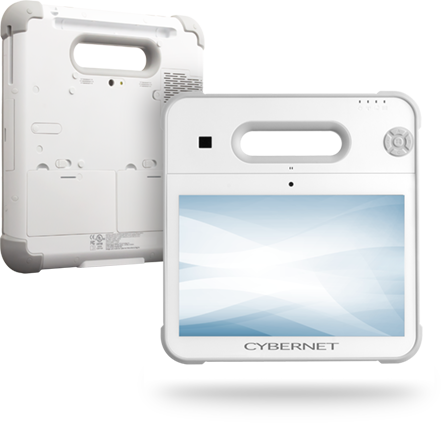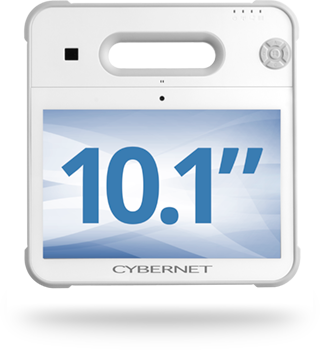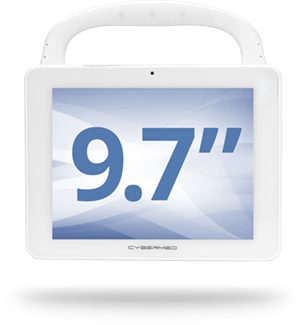What Makes Our Tablets Medical-Grade
Our tablets aren't labeled "medical-grade" for mere aesthetic appeal. Instead, they are specifically engineered for healthcare settings, integrating features that align with their intended purpose.
HIPAA-Compliant
The Health Insurance Portability and Accountability Act (HIPAA) requires healthcare providers to protect the data and privacy of their patients. Cybernet's tablets integrate security features including multi-factor authentication, such as fingerprint and RFID readers, to help fulfill this requirement.
Rated IP65
An ingress protection (IP) rating indicates how protected an electronic device is against dust and water intrusion. With an IP rating of 65, our medical tablets are protected against dust, water, and other fluids that may splash on them in a healthcare environment. This helps guarantee they will operate even under the messiest of conditions.
Antimicrobial* Housing
Like all our devices, our medical-grade tablets use housings with antimicrobial properties that protect the computer resin and plastic parts from degradation.
24/7 Operation
Tablets in a hospital ward must be able to function continuously to guarantee the health and safety of patients. We extensively design and test our medical tablets to ensure they will be operational for weeks at a time.
Legacy Devices Compatible
Hospitals and clinics often use older legacy equipment that is still functional but no longer supported by the manufacturer. Our tablets implement legacy ports and other features that allow them to interface with this equipment, sparing healthcare groups from having to purchase expensive replacements for them.


